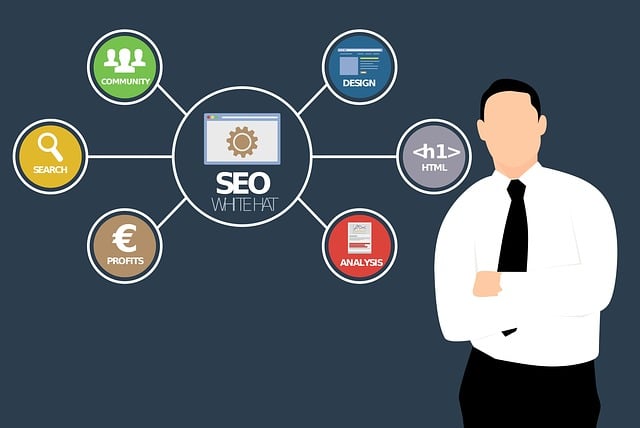AI SMS marketing automation leverages deep learning to transform traditional text messaging into a powerful engagement tool, allowing businesses to personalize and optimize large-scale campaigns. By analyzing customer behavior, preferences, and trends, this technology creates highly targeted messages that enhance satisfaction and drive higher conversion rates. However, implementing AI SMS marketing automation also requires addressing challenges such as data management, scalability, privacy concerns, regulatory compliance, and fostering customer trust. Businesses must build a robust AI infrastructure with effective data practices, scalable computing resources, and cloud platform integration to unlock the full potential of this game-changing technology.
“The future of marketing is here, and it’s powered by Artificial Intelligence (AI) and deep learning algorithms. This article explores the transformative potential of AI SMS marketing automation, delving into how deep learning enhances customer engagement. We’ll guide you through building a robust AI business infrastructure tailored for deep learning models, focusing on efficient data management and model deployment. Additionally, we’ll uncover best practices and address challenges in implementing AI SMS strategies, ensuring businesses leverage this technology effectively.”
- Understanding AI SMS Marketing Automation: The Power of Deep Learning
- Building an Efficient AI Business Infrastructure for Deep Learning Models
- Best Practices and Challenges in Implementing AI SMS Marketing with Deep Learning
Understanding AI SMS Marketing Automation: The Power of Deep Learning

AI SMS marketing automation has emerged as a game-changer in the digital marketing landscape, leveraging deep learning to transform traditional text messaging into a powerful engagement tool. By employing neural networks and advanced algorithms, businesses can now personalize and optimize their SMS campaigns at scale, fostering more meaningful connections with customers. Deep learning enables sophisticated analysis of customer behavior, preferences, and trends, allowing for highly targeted messages that resonate with individual recipients.
This technology goes beyond simple automation; it facilitates dynamic content creation, ensuring each text message is tailored to the recipient’s unique profile. From personalized offers to context-aware reminders, deep learning-powered AI SMS marketing automation enhances customer satisfaction and drives higher conversion rates. Businesses can leverage this technology to build stronger customer relationships, improve campaign effectiveness, and ultimately boost their bottom line in today’s competitive market.
Building an Efficient AI Business Infrastructure for Deep Learning Models

In today’s digital era, building an efficient AI business infrastructure is pivotal for leveraging deep learning models to their fullest potential. This involves integrating cutting-edge technologies like artificial intelligence and SMS marketing automation to streamline processes and enhance decision-making. By orchestrating these tools in harmony, businesses can automate repetitive tasks, analyze vast datasets with precision, and deliver hyper-personalized customer experiences.
The core of this infrastructure lies in robust data management practices, ensuring high-quality, diverse datasets fuel the training and validation of deep learning models. Scalable computing resources, including powerful GPUs or TPUs, are essential to handle complex model architectures and real-time processing demands. Additionally, seamless integration with cloud platforms allows for flexible deployment, rapid iteration, and cost-effective scaling as business needs evolve in the dynamic landscape of AI-driven SMS marketing automation.
Best Practices and Challenges in Implementing AI SMS Marketing with Deep Learning

Implementing AI-driven SMS marketing automation presents both exciting opportunities and unique challenges. Best practices involve leveraging deep learning models to personalize messages based on user behavior and preferences, ensuring timely delivery, and integrating with existing customer relationship management (CRM) systems for seamless data flow. This enables businesses to achieve higher engagement rates and improved conversions.
Challenges include dealing with dynamic and noisy data, maintaining high levels of personalization without sacrificing scalability, and addressing privacy concerns related to user data collection and usage. Additionally, ensuring compliance with regulatory frameworks, such as GDPR or CCPA, is crucial to avoid legal pitfalls. Effective communication and transparency regarding the use of AI in marketing are essential to build and maintain customer trust.
AI SMS marketing automation leverages deep learning infrastructure to revolutionize business communication. By building efficient AI models and implementing best practices, companies can harness the power of personalized, data-driven interactions to engage customers effectively. While challenges exist, navigating these obstacles with thoughtful strategies ensures successful integration of deep learning in SMS marketing campaigns.
